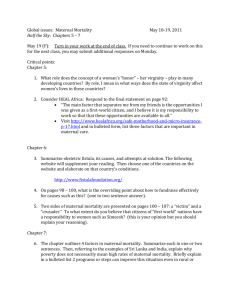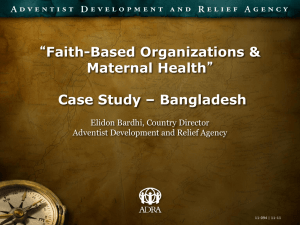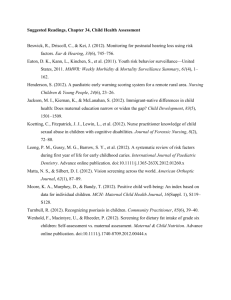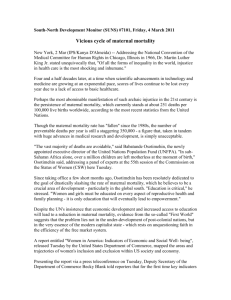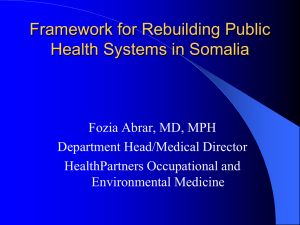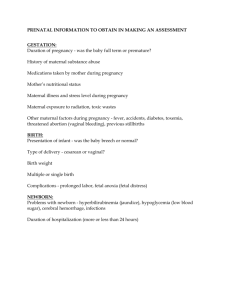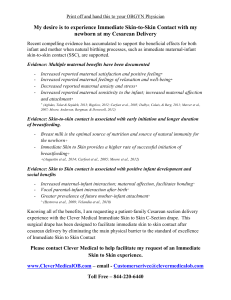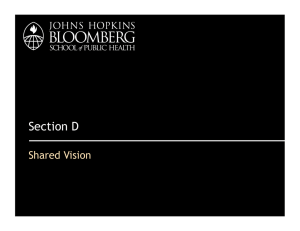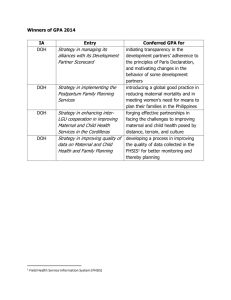Gender Violence, Maternal Health, Economic Empowerment Discussion
advertisement
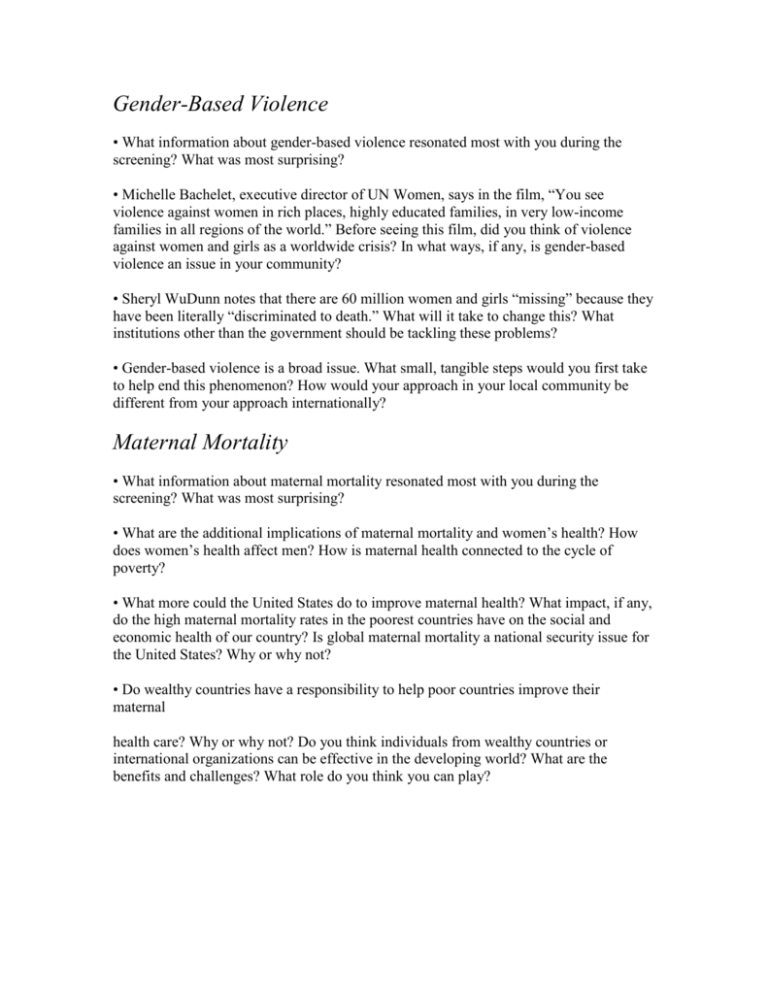
Gender-Based Violence • What information about gender-based violence resonated most with you during the screening? What was most surprising? • Michelle Bachelet, executive director of UN Women, says in the film, “You see violence against women in rich places, highly educated families, in very low-income families in all regions of the world.” Before seeing this film, did you think of violence against women and girls as a worldwide crisis? In what ways, if any, is gender-based violence an issue in your community? • Sheryl WuDunn notes that there are 60 million women and girls “missing” because they have been literally “discriminated to death.” What will it take to change this? What institutions other than the government should be tackling these problems? • Gender-based violence is a broad issue. What small, tangible steps would you first take to help end this phenomenon? How would your approach in your local community be different from your approach internationally? Maternal Mortality • What information about maternal mortality resonated most with you during the screening? What was most surprising? • What are the additional implications of maternal mortality and women’s health? How does women’s health affect men? How is maternal health connected to the cycle of poverty? • What more could the United States do to improve maternal health? What impact, if any, do the high maternal mortality rates in the poorest countries have on the social and economic health of our country? Is global maternal mortality a national security issue for the United States? Why or why not? • Do wealthy countries have a responsibility to help poor countries improve their maternal health care? Why or why not? Do you think individuals from wealthy countries or international organizations can be effective in the developing world? What are the benefits and challenges? What role do you think you can play? Economic Empowerment • When we read about these types of problems, we tend to immediately think of aid programs and organizations, but what about business as a solution? What are the benefits and pitfalls of social entrepreneurship in comparison to traditional aid? • In the film, Nicholas Kristof explains that microfinance programs have not been as successful in Africa as they have in Southeast Asia. Why do you think that is? What challenges do women in African countries face that are unique to their regions? • What role has the issue of economic empowerment played in your life? Were there different economic expectations for girls and boys in your community or family? Were you expected to be financially independent when you grew up? How did your experience compare to that of the women in the film? • How can we take action to help economically empower women around the world? Could we join a microlending group -- like Kiva, Heifer, or Women’s World Banking -and raise money to loan to female entrepreneurs? Should we spread awareness in our community about the benefits of microloans in developing countries? What else?
